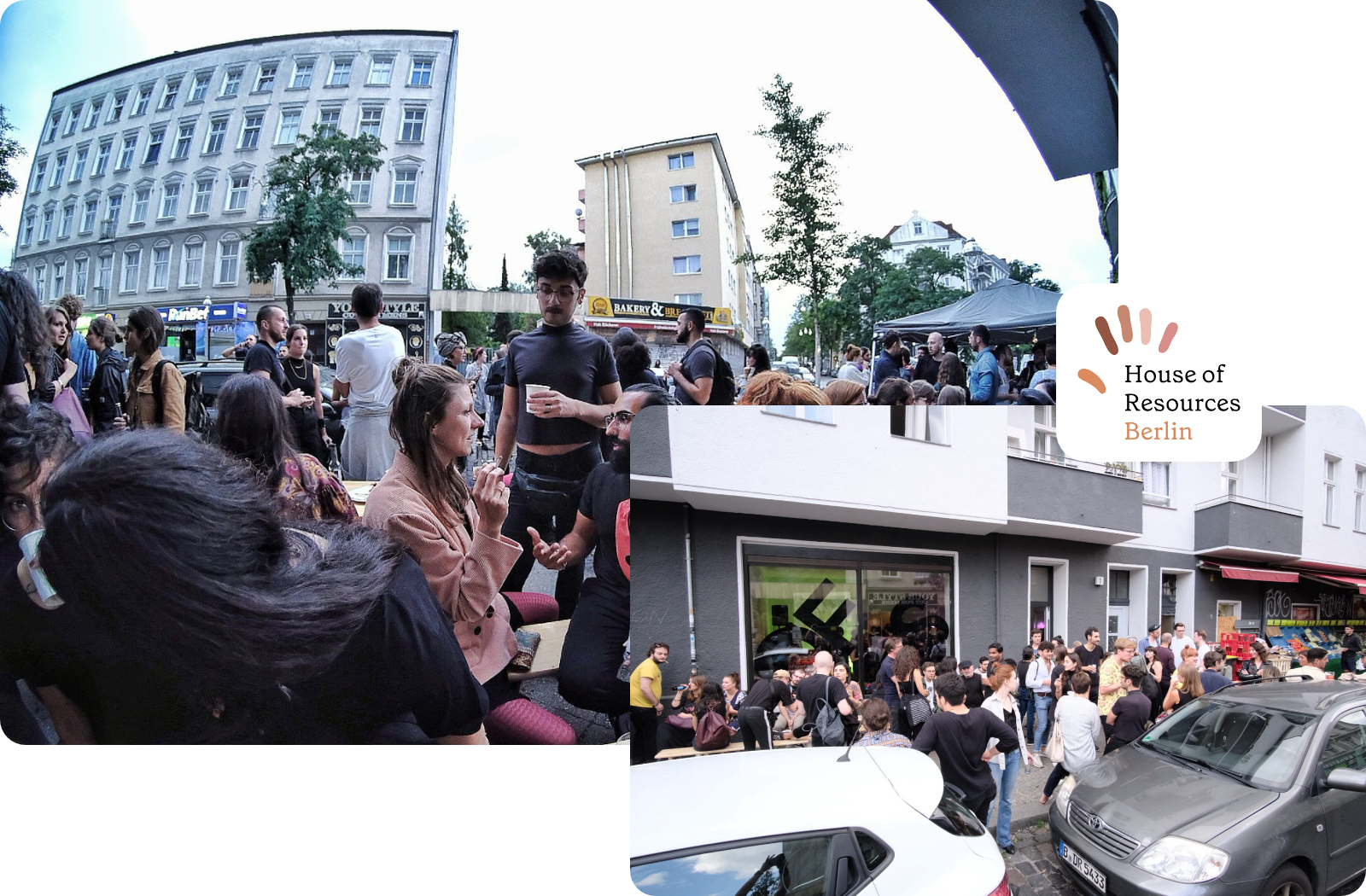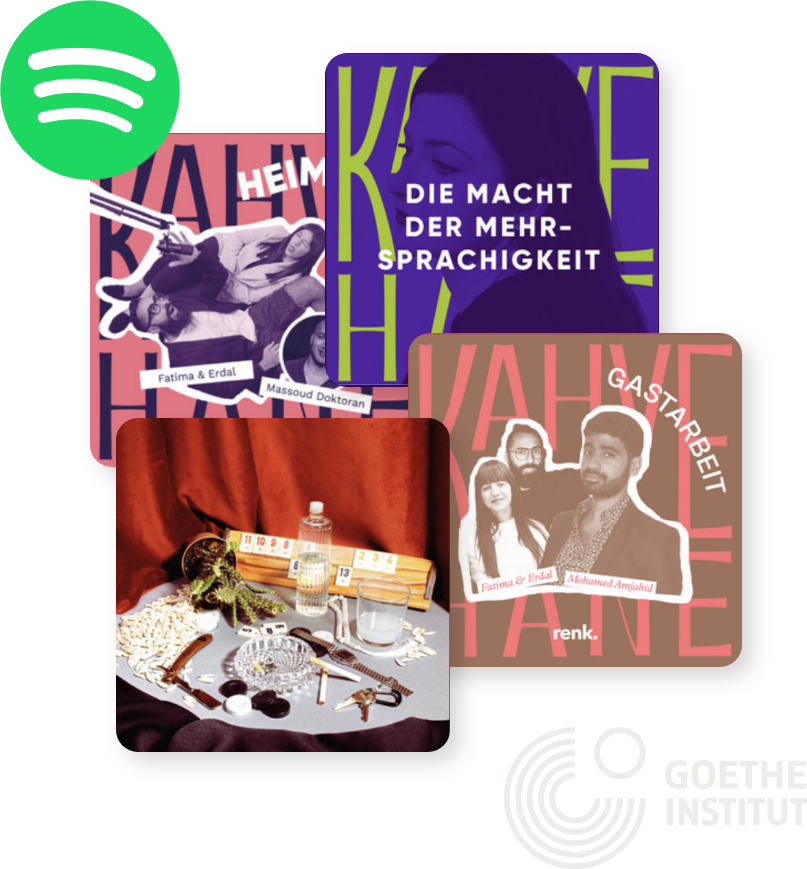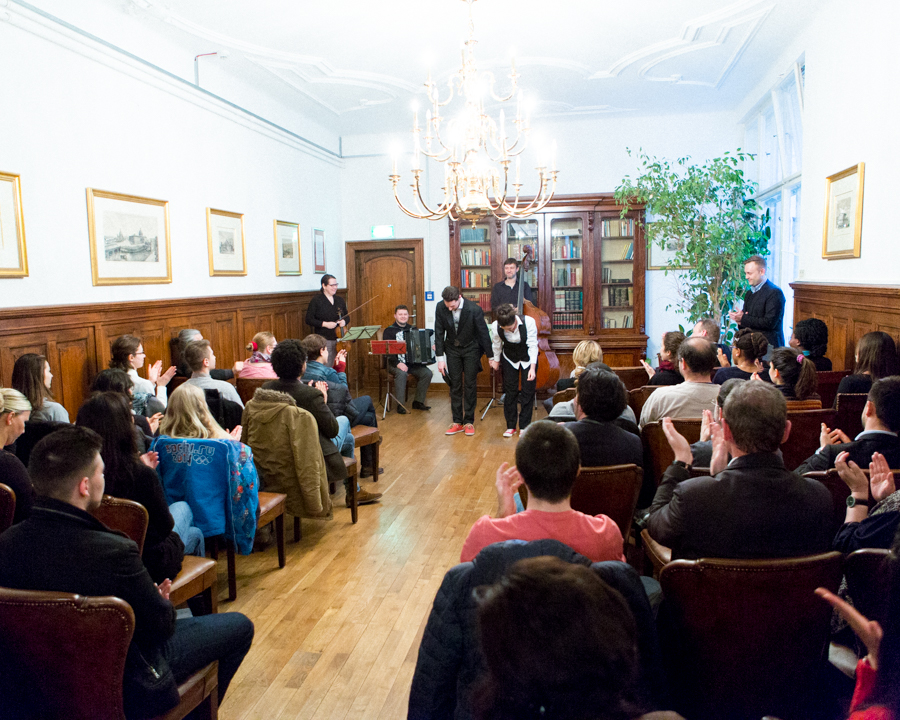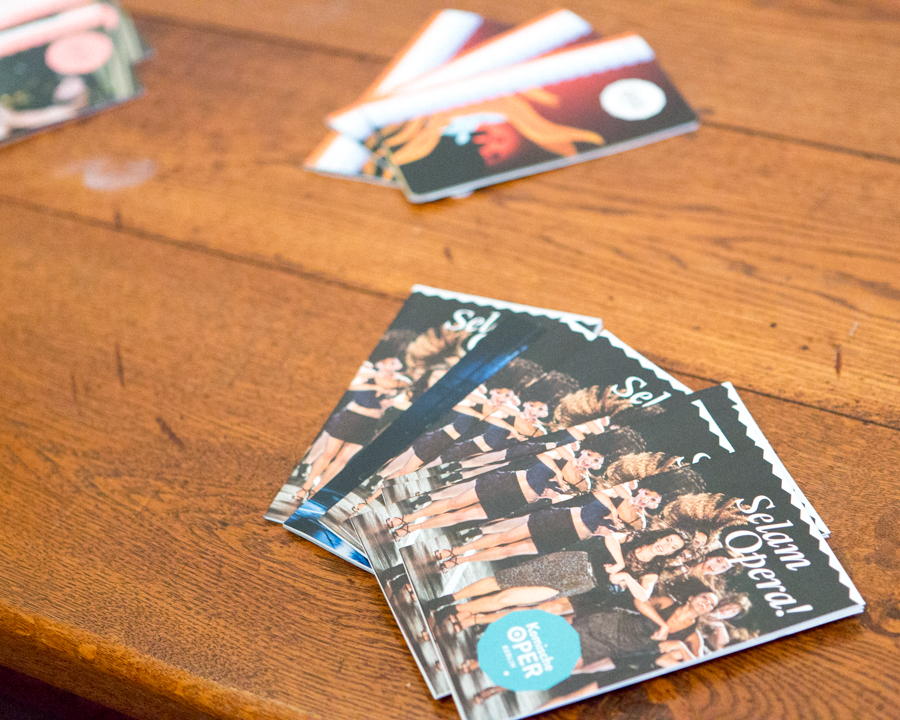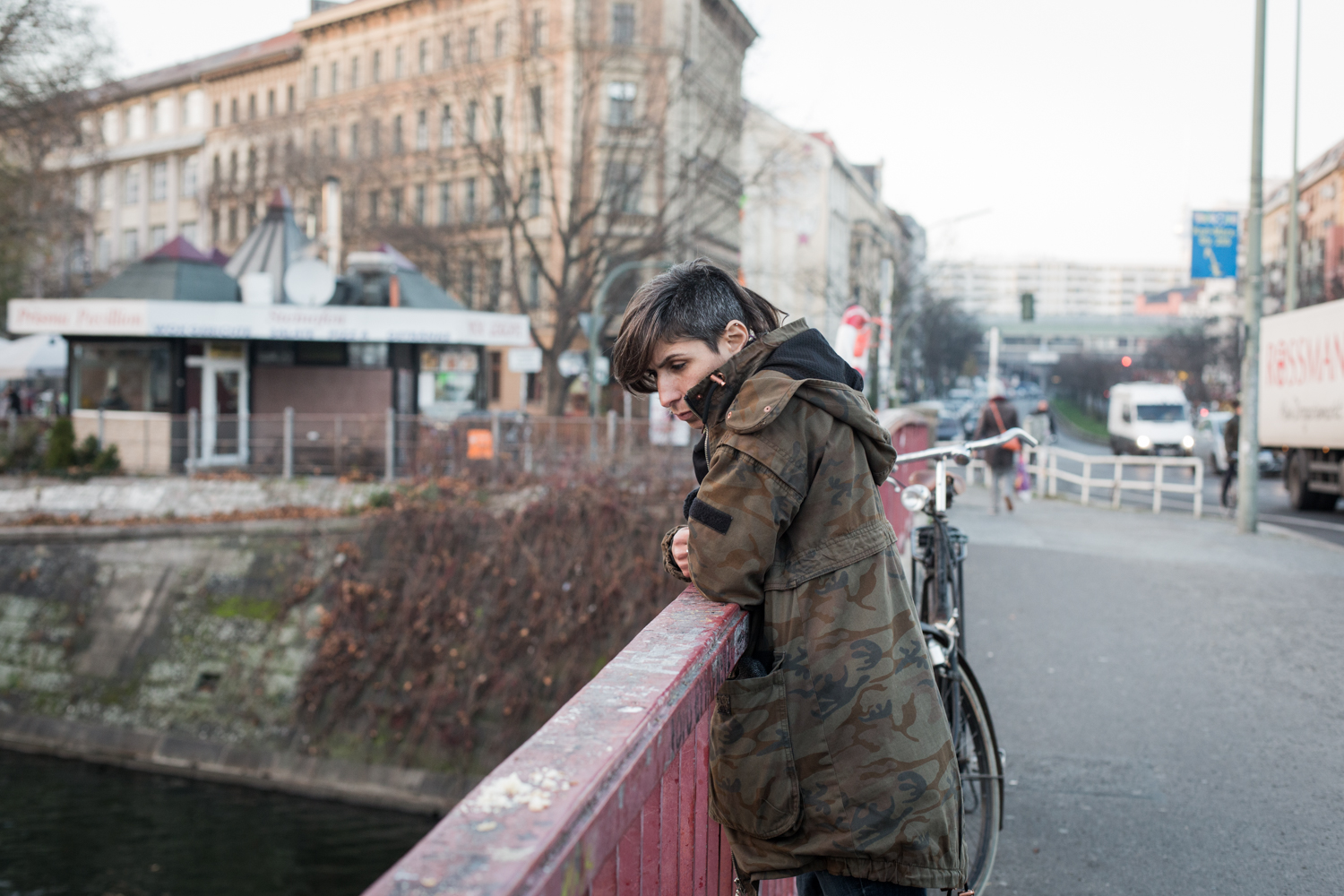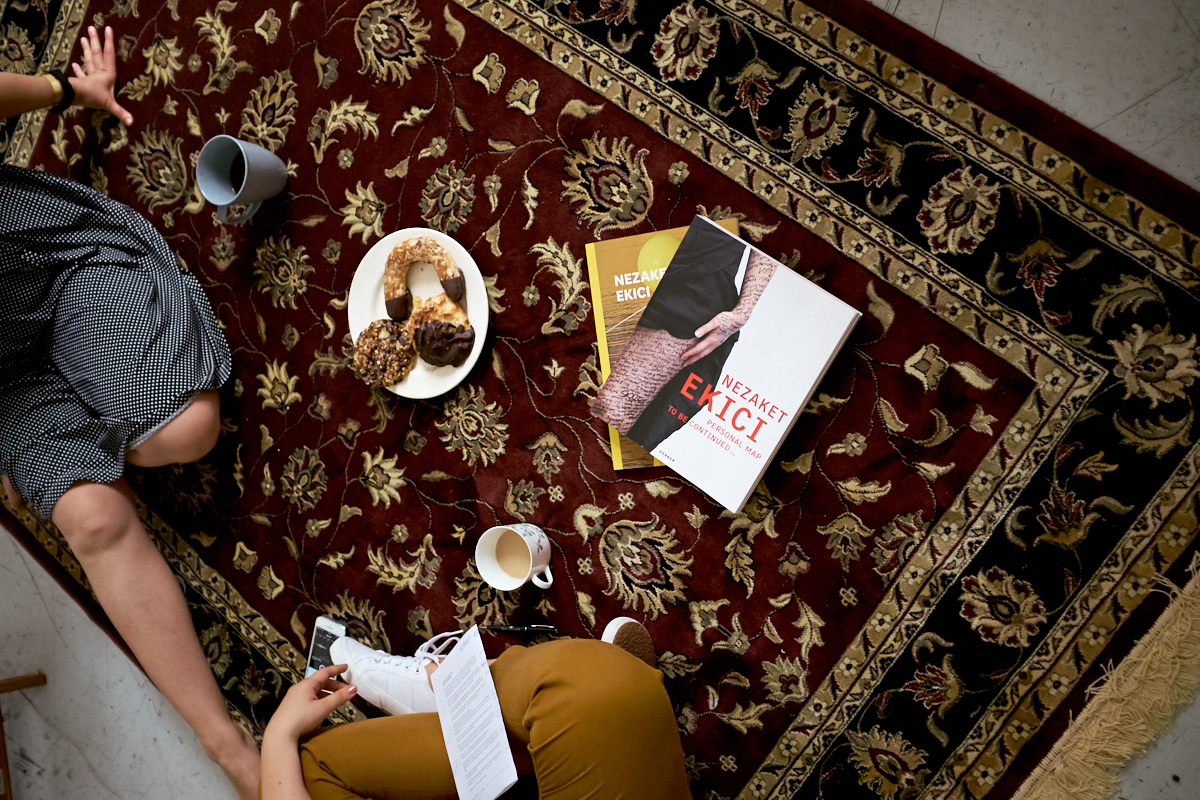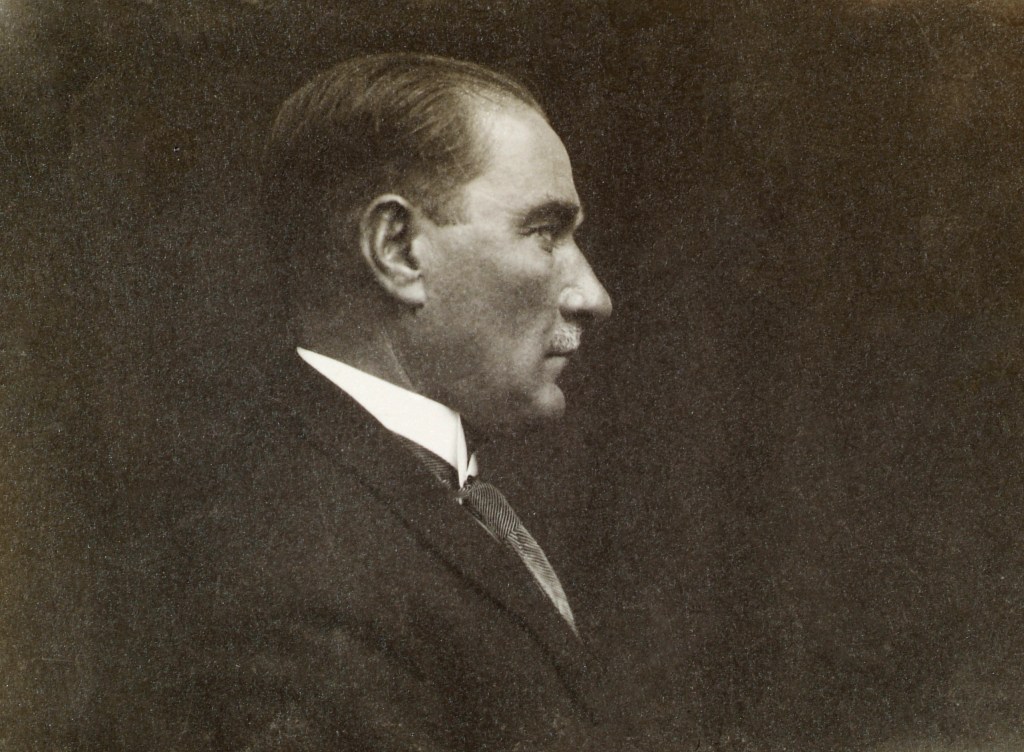The sold-out halls of the Komische Oper Berlin are filled with Toms, Dicks and Harrys. Not so much with Ali ile Veli (the Turkish version of Tom, Dick and Harry), however, because it doesn’t seem like there are many Turks sitting in the audience. While international guests can read the subtitles in German, English and French, Turkish isn’t available. This is a problem that Mustafa Akça doesn’t want to ignore. The music teacher is founding a project that invites German-Turks to get into contemporary German musical theatre. Akça thinks of workshops, presentations and a short repertoire that displays various operettas.
»Selam Opera« is the opera’s little sister.
Akça needs to find a team. The house is full, but first he’s got to convince his ensemble to take part. In addition to this, the theatre teacher needs a car. His project doesn’t perform in the Komische Oper, but rather on the street, and in neighborhoods, language schools and community centres. Akça finds a dramaturge, a handful of musicians and two voices. The small ensemble, the few instruments and the scaled-down set make his project the less opulent sister of the Komische Oper. »I wanted a name for my project that sounds like a friendly hello or an invitation«, explains Akça. »That’s why it’s called »Selam Opera«.
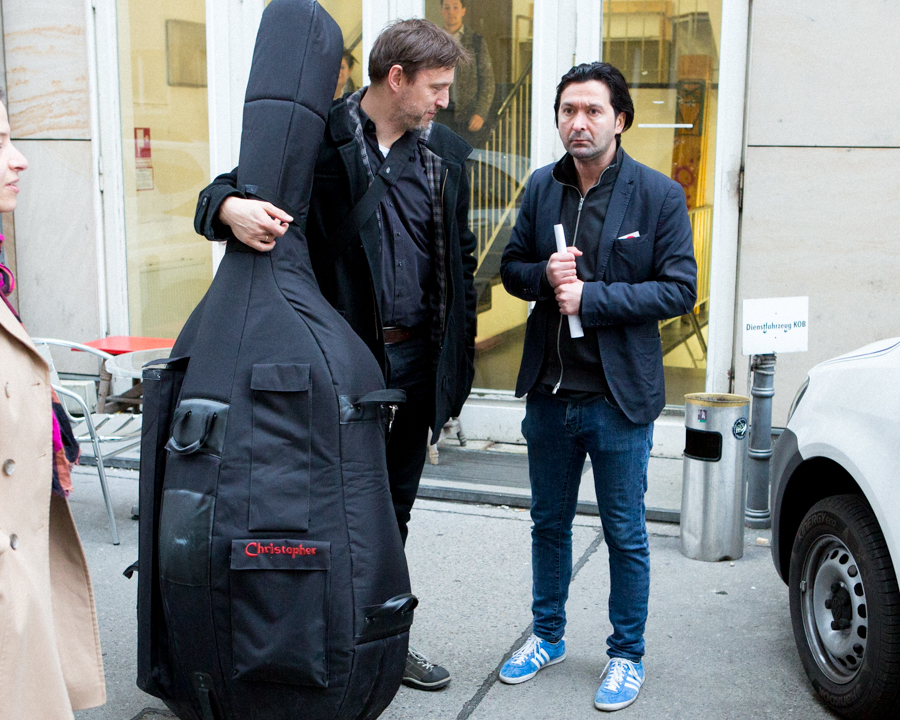
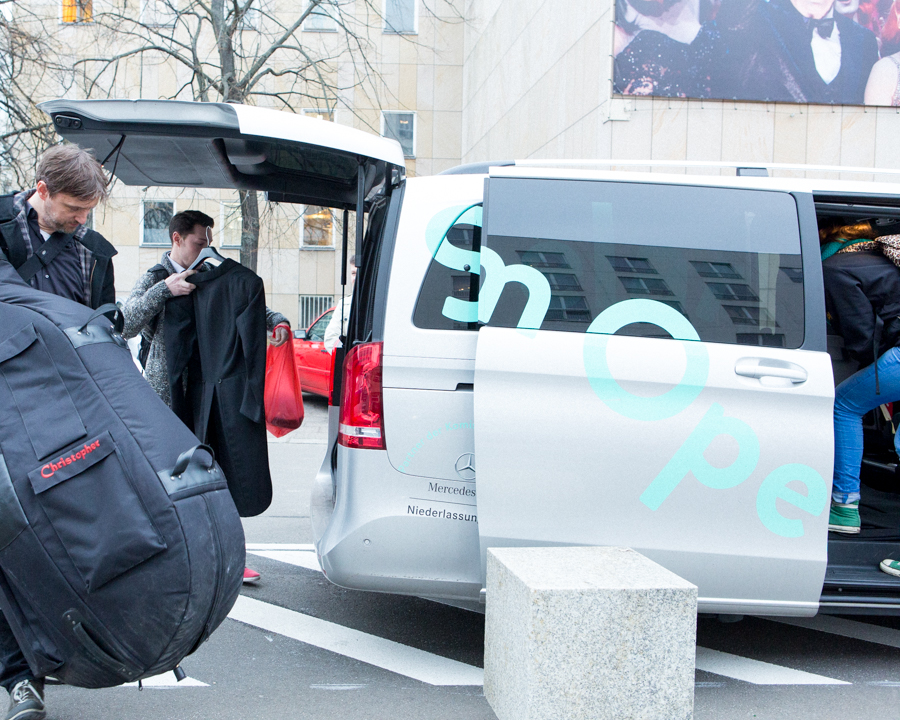
On a Thursday afternoon in March, they prepare for a performance in the Hartnack Language School. Akça leads his troop to a van that they all simply call the »Operadolmuş« and gives the floor to Arnulf Ballhorn. He explains the simple principle to us: »We want to convey a »we-feeling« to German-Turks that will break down their reservations towards opera.« The contrabassist has been participating as a musician from the very beginning of »Selam Opera«; it’s been four years since then. Along with his orchestra colleague Juri Tarasenok and tenor Johannes Dunz, he gets into the vehicle. »For us, it’s about giving some direction«, adds Ballhorn with a glance in the rear-view mirror. »We want to show what opera is, specifically, that it is not necessarily a place where fat people stand on a stage and scream at each other«.
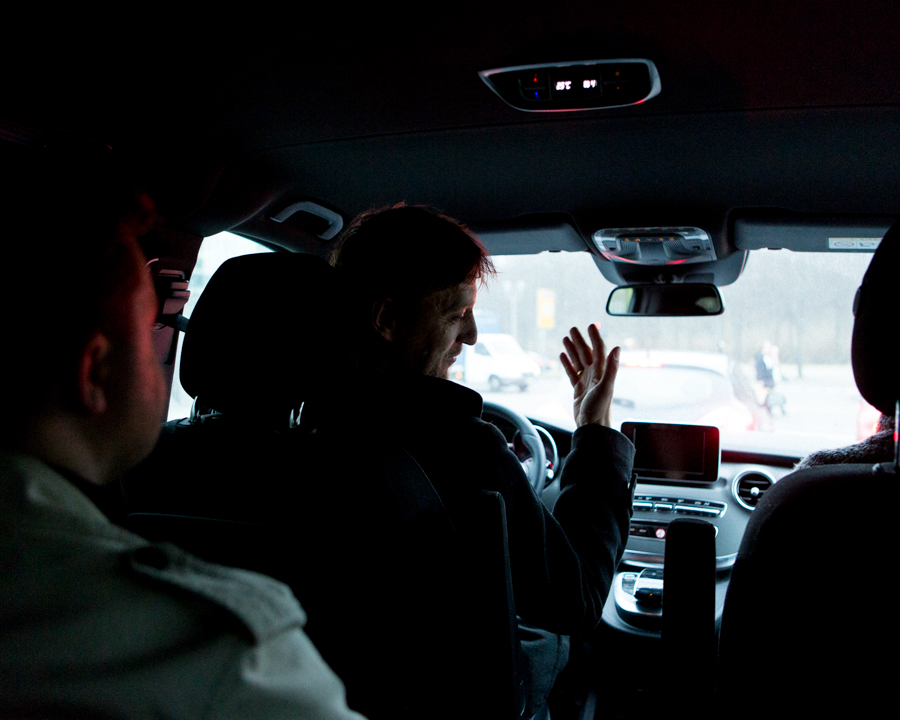
In Turkish, a dolmuş is a rickety vehicle, a traditional shared taxi. The Operadolmuş, in contrast, is a Mercedes and has almost no similarities to the original. It simply describes the driving style over bumpy streets that reminds one of Turkish taxi drivers. The fourth passenger is Ballhorn’s imposing contrabass, which sits on the back seat.
A Performance with a Living Room Feeling
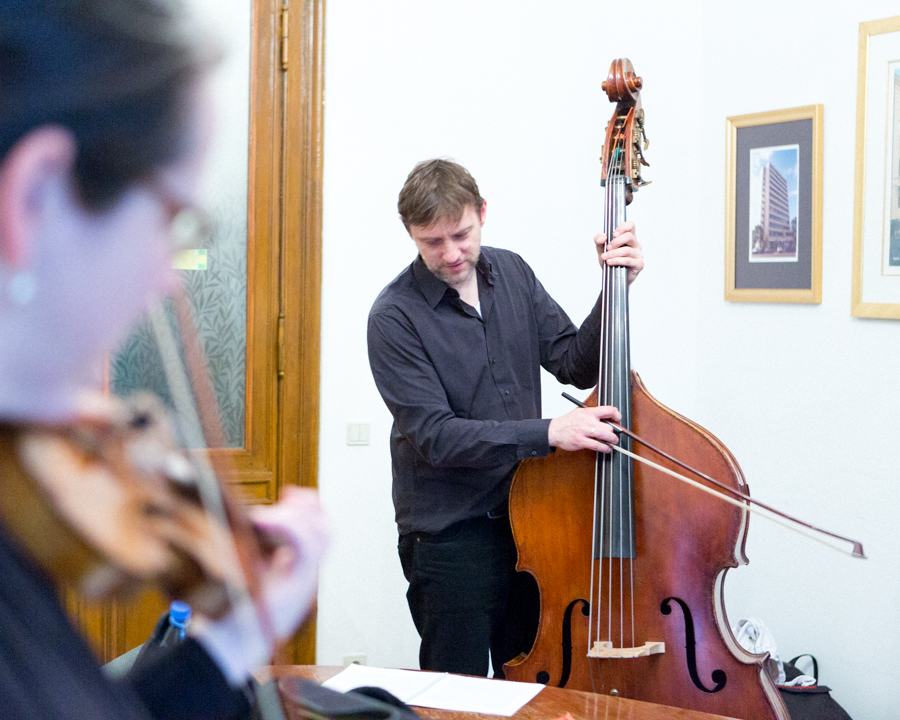
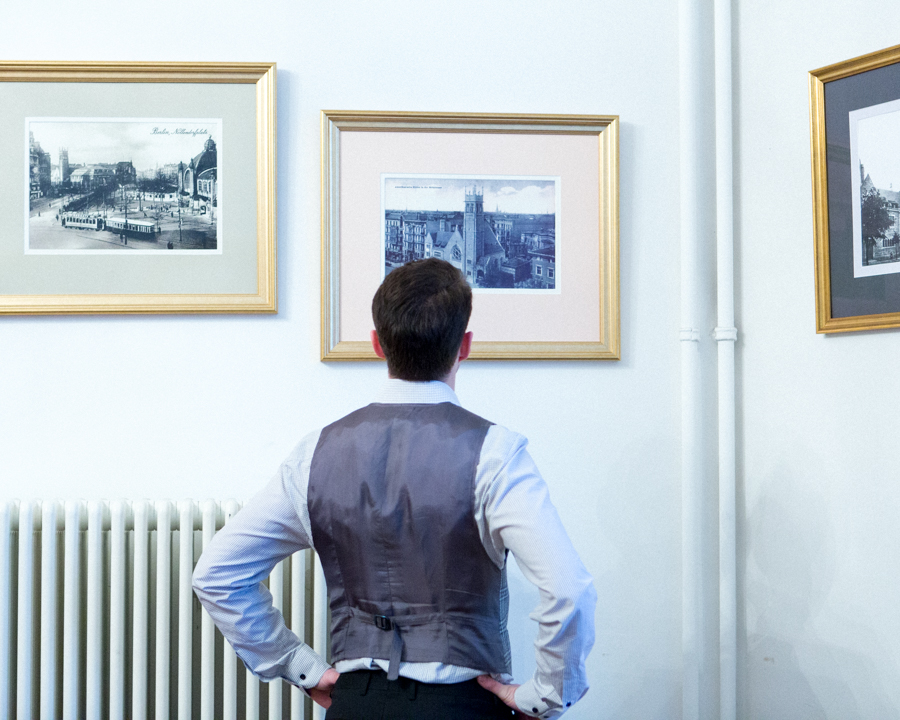
Today a small room in the Hartnack Language School is serving as the stage for »Selam Opera«. The space is filled with thirty seats, upholstered with leather, for thirty students. The light coming from the chandelier on the ceiling spreads across the room like a soft focus lens. Gold-framed, historical pictures of Nollendorfplatz in Berlin hang on the walls. A fifteen minute ride and a dress rehearsal later, the three musicians meant to represent the orchestra, Arnulf Ballhorn on contrabass, Juri Tarasenok on Eastern-European accordion, the so-called bajan, and Daniela Braun on violin, are on the stage. No hidden 60-person orchestra, as per usual for an opera; the performance has a living room feeling. The direct exchange between the audience and the orchestra musicians and singers takes places through facial expressions and gestures. The audience is not draped in darkness here, as is customary as soon as the first note resounds in an opera hall. Even the audience behaves untypically: The students whip out their smart phones in order to record the performance. As a matter of fact, surrounded by only thirty listeners, one feels as if they are an integrated component of the piece.
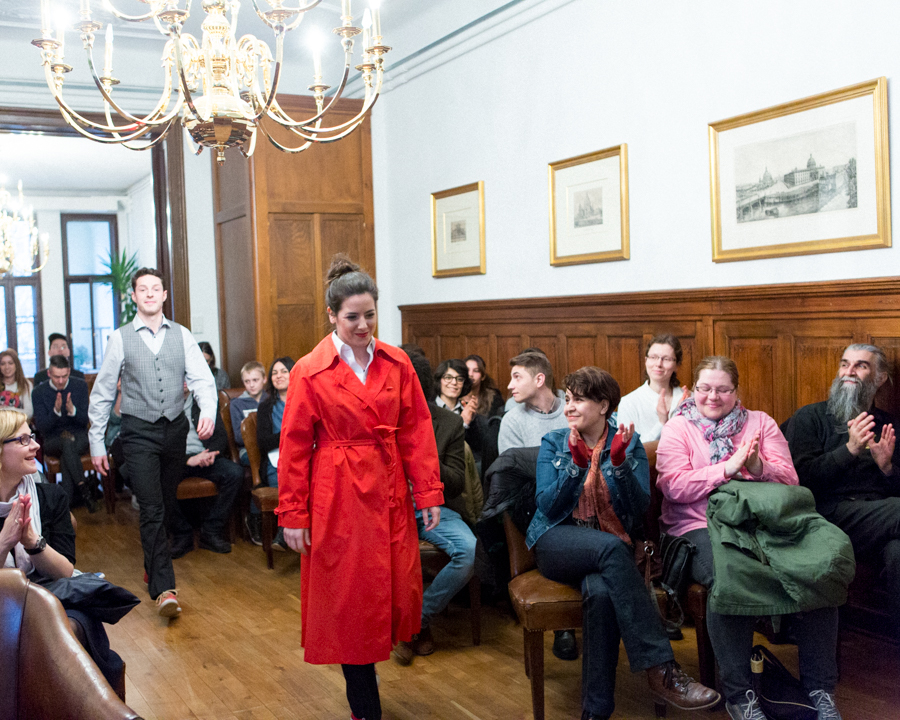
»Women in opera don’t often experience the end«
Mezzo soprano Zoe Kissa strides with Dunz into the setting. She begins with a scene from the comic opera, »The Barber of Seville«, by Rossini. Despite the dialogue’s comical nature, the faces in the room are sceptical. But the first impression deceives; the room fills with applause as the scene finishes. It is followed by extracts from operettas such as »The Marriage of Figaro« (Mozart), »The White Horse Inn« (Benatzky), and »The Flower of Hawaii« (Abraham), which takes place in Berlin.
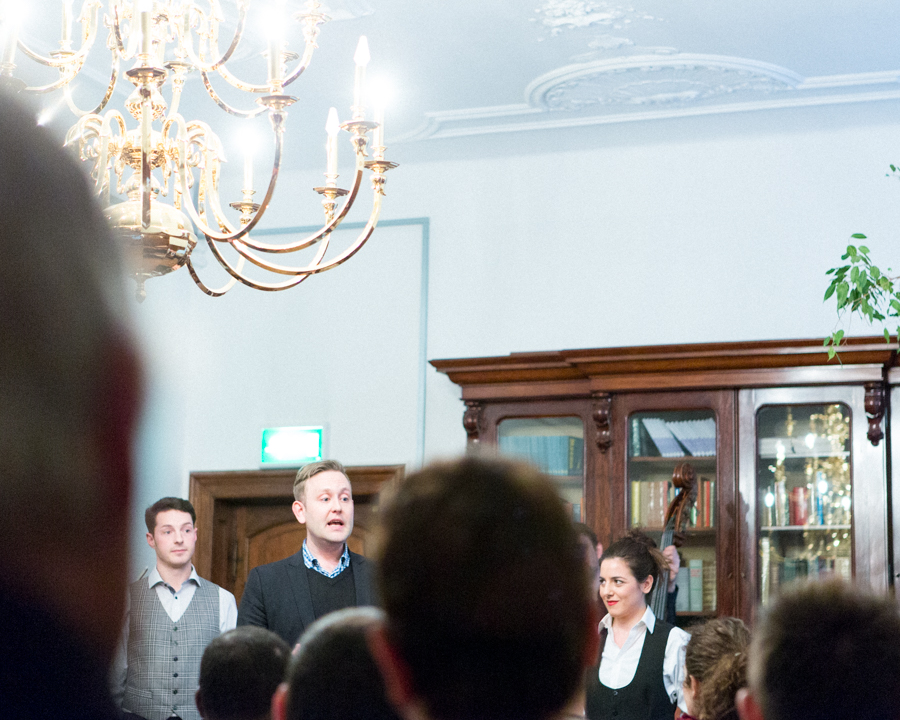
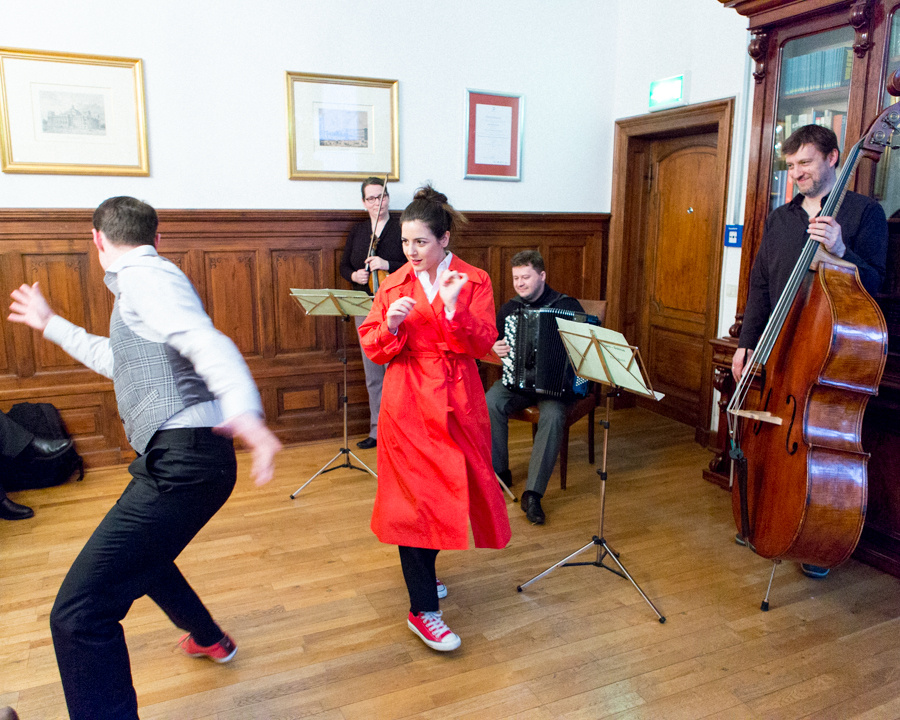
Pavel B. Jiracek devised this program and, as the dramaturge, provides the necessary background information during his presentation. Jiracek explains that music is also a language. »Certainly one that everyone can understand«, he adds. The audience guesses the correct answer to the trivia question, in which foreign language Zoe mimes as »Carmen« (Bizet) in the eponymous play – Turkish. Jiracek receives furrowed brows and laughter in reaction to the anecdote that women in opera don’t often experience the end of the piece, but, on the other hand, emancipate themselves in their performances. More than anything, feelings in operas are meant to be of great importance. Opera works because it tells »emotional stories that have to do with love«, reveals the dramaturge. You believe it, just like the girls and boys in the room secretly glance at each other, as Dunz and Kissa banter and flirt with one another in their roles during the song »My Little Boy«.
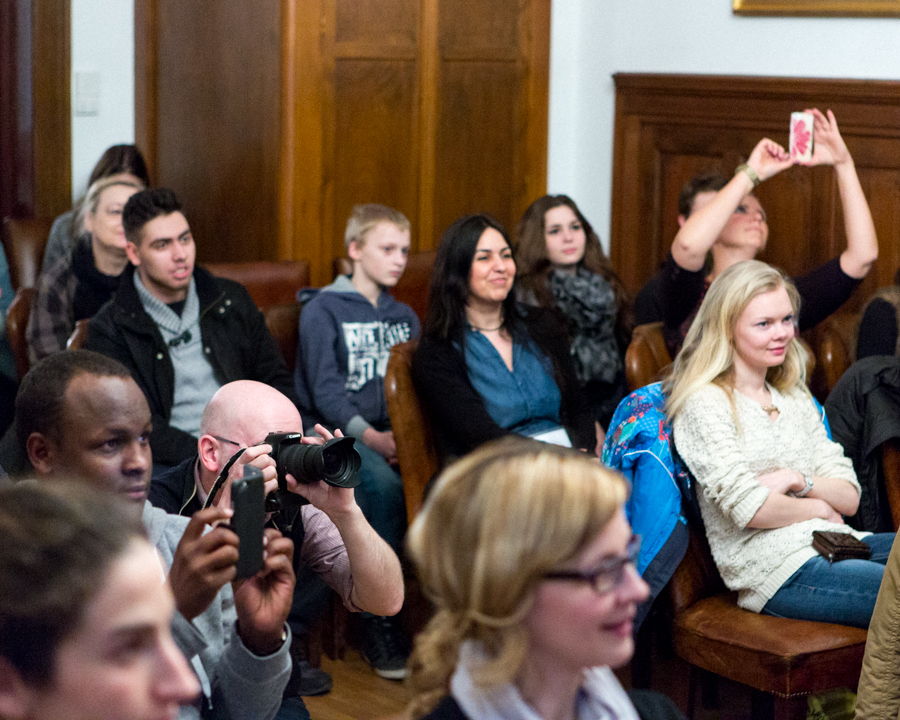
»Our barometer is the reaction from the audience. «
The audience and the ensemble mingle, walk through the double doors and take sandwiches from the buffet in the side room with them. The students are too shy for the concluding Q and A. Dunz can’t blame them, as the school director is unusually mixed in with his pupils and could judge every word his students say. »The reaction is our barometer«, he says. We never know how many people’s minds we’ve really changed until they tell us.« The students pour each other drinks in paper cups and take a look at the »Selam Opera« brochures, which are picked up as quickly as they’re laid out. Kissa is pleased. »The audience is warm. We came across well«.
Marat, who had followed the performance with a concentrated and furrowed brow in one of the back rows, explains that he is a fan of classical music. »I love The Marriage of Figaro. It was exciting to see the scene confined in this tight space and by a time limit«, he says. His classmate Cetita Combé is delighted: »They exceeded my expectations. All of them. The tenor was amazing and the acoustics and the jokes were great. The Carmen in Turkish was also so special. I had only experienced it in the original French«. Hartnack Director Lauterbach donates a hundred free tickets for a visit to the Komische Oper. Quiet oohs and aahs go through the room. If the students wanted to, they could follow all of the operas with Turkish texts. They’re available now.
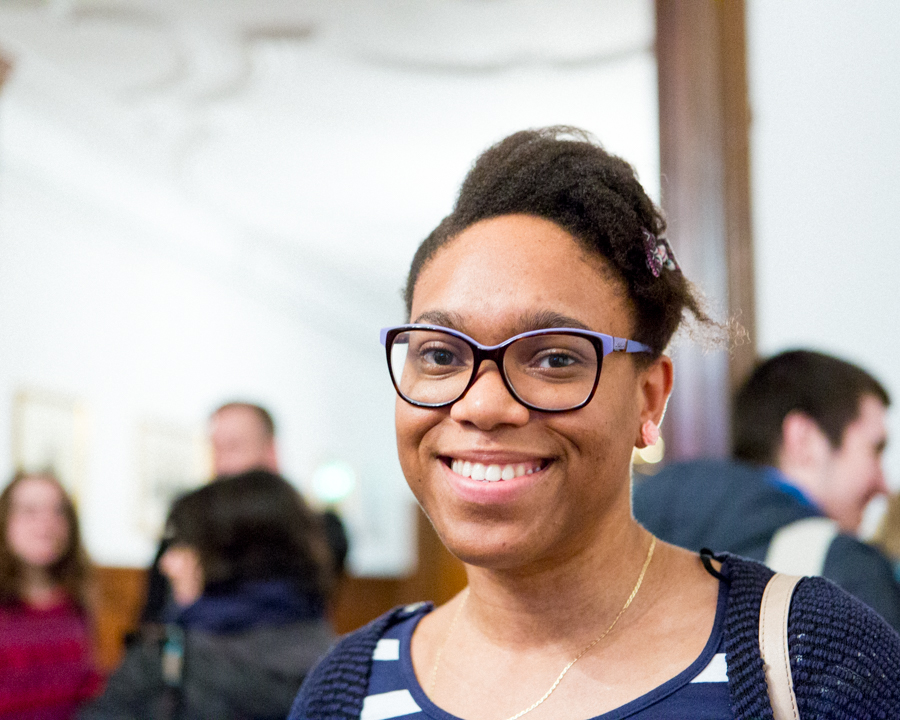
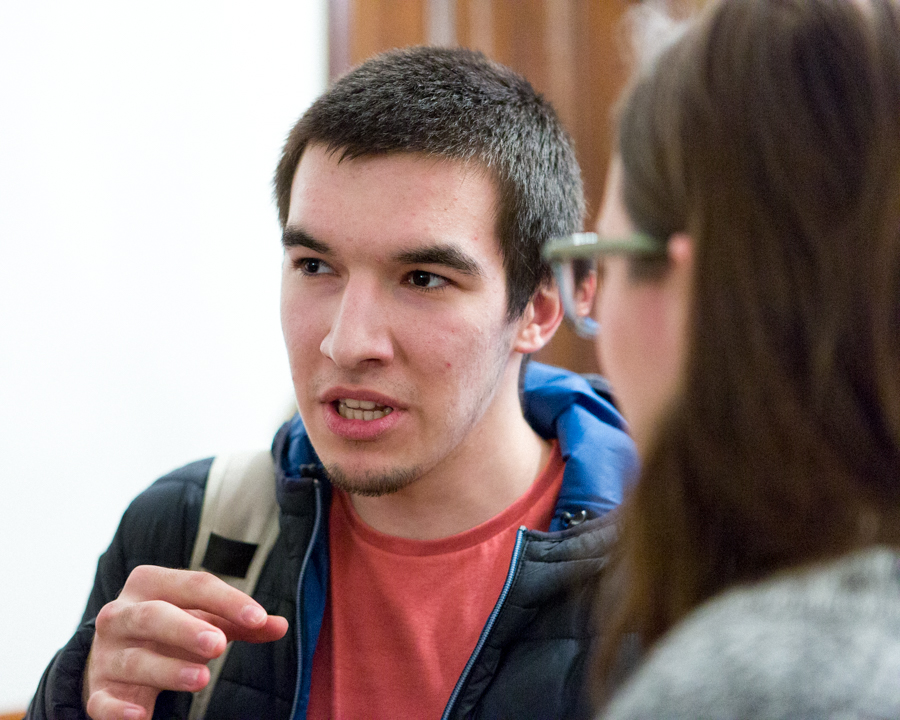
What »Selam Opera« has accomplished
The German-Turkish network has expanded and taken on a life of its own. In the entwined levels of the opera complex in Behrenstraße there are fathers with their children. They’re coming from the trials for the German-Turkish children’s choir, a further component of »Selam Opera«. They nod respectfully to Mustafa Akça, since it’s thanks to his initiative that the diversity of the house can no longer be found on solely the brochure papers.
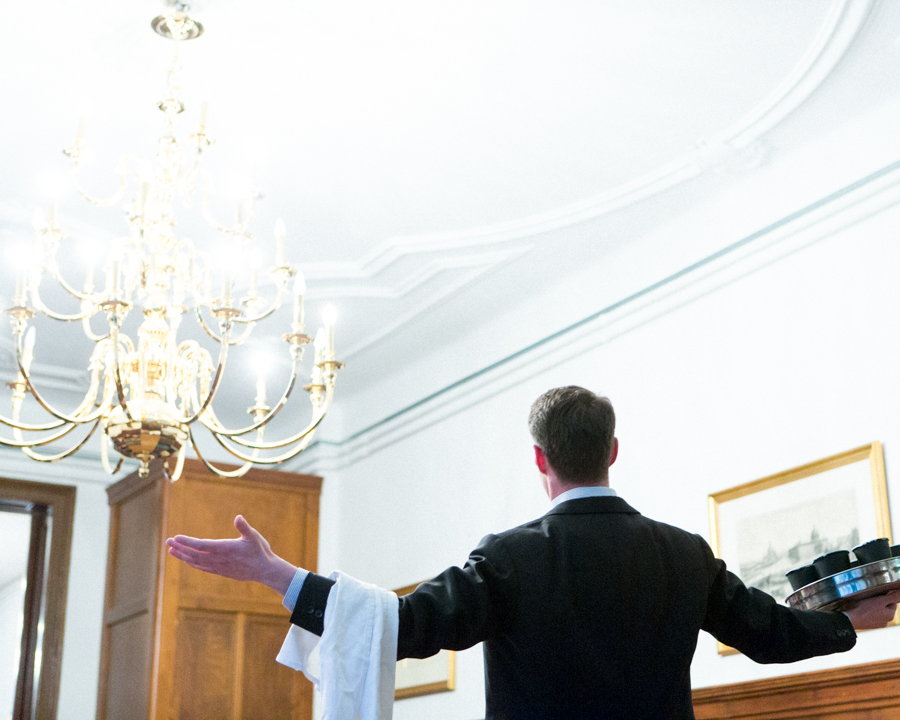
Credits:
Text: Genna-Luisa Thiele
